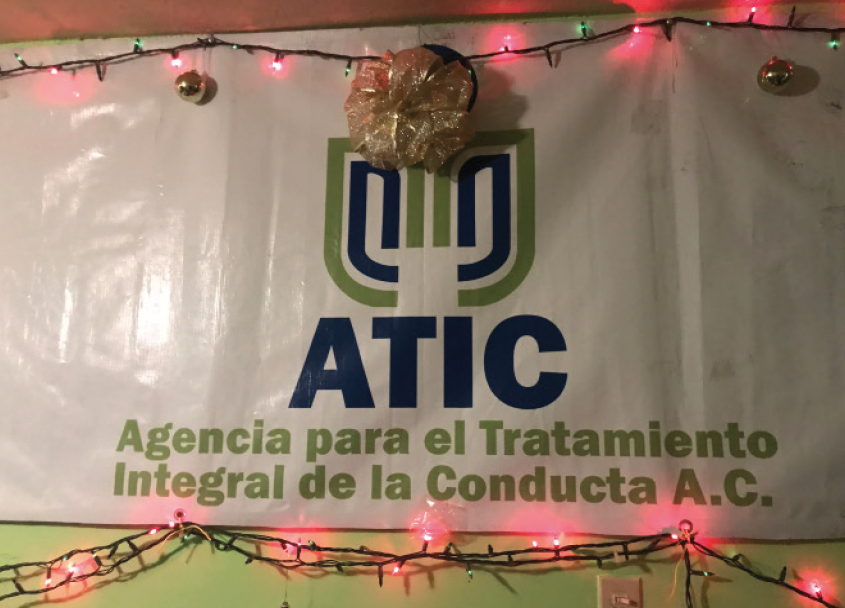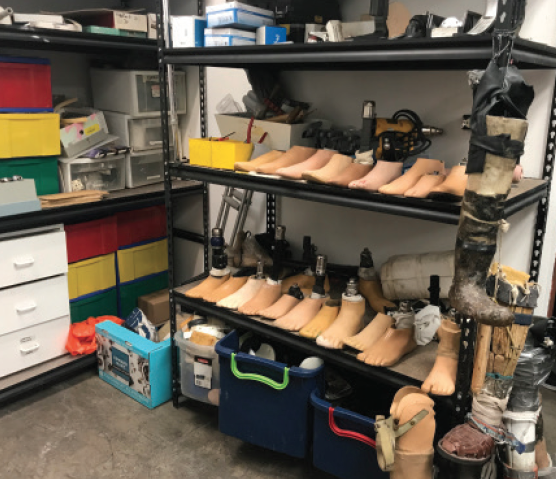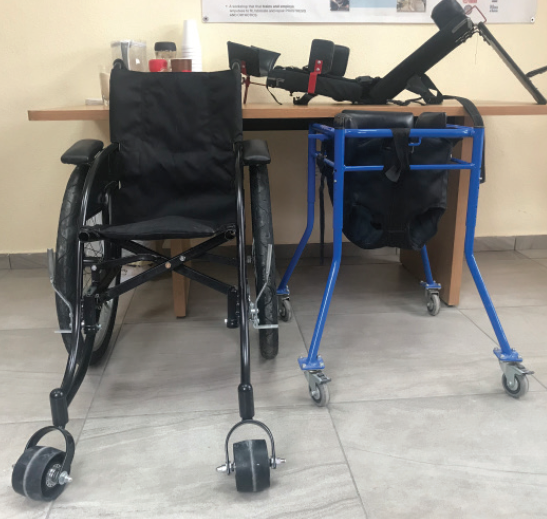During the winter of 2020, twelve Mills students traveled to the U.S./Mexico border in Arizona to learn about the issues affecting migrants and the surrounding communities. They were led by Professor of Biology Dr. Lisa Urry, Nogales host Tony Sedgwick, and Mills Academic Navigator Daisy Villa.

The students participated in an eight-day course entitled “The U.S./Mexico Border Immersive Experience,” where each day was filled with activities that gave them the opportunity to speak with local community activists that specialize in different aspects of humanitarian aid on both the U.S. and Mexican sides of the border.
On one of these days, students were given a tour of organizations in Nogales, Sonora, led by Alex La Pierre, a volunteer of the Border Community Alliance (BCA), and Alma Cota de Yánez, executive director of Fundación del Empresariado Sonorense A.C. (FESAC). BCA and FESAC are nonprofit organizations that aim to improve the lives of communities living near the border and educate people on the reality of issues in the area.
On this tour, students visited two organizations that dealt with differing disabilities: Agencia para el Tratamiento Integral de la Conducta (Agency for Comprehensive Behavioral Treatment) (ATIC), and Arizona Sonora Border Projects for Inclusion (ARSOBO).
Agencia para el Tratamiento Integral de la Conducta (ATIC)
ATIC is a civil association that is focused on training parents, family members and teachers on how to manage behavioral issues in children with disabilities. They specialize in helping families getting diagnoses for their children with autism, behavioral disorders, attention deficits and developmental disorders. They also support families with therapy for children who have difficulty in classroom settings and completing certain tasks.
Mothers and fathers want their children to be safe while they go to work during the day, but many are forced to quit their jobs to stay home with their child or rely on external help from a grandparent.
ATIC recognized the lack of education around autism and how many teachers were not trained on how to approach behavioral issues. There is no government funding in Mexico for a program of this nature. The organization developed a manual that would educate professionals, teachers and families on how to care for children with autism. They also hold lectures, workshops for families, and training sessions for teachers who are willing.
Arizona Sonora Border Projects for Inclusion (ARSOBO)
ArSoBo is a non-governmental, cross-border organization that assists people with physical disabilities by providing them with adaptive devices at an affordable cost. They build wheelchairs, prosthetics, orthotics and hearing devices.
“The government doesn’t provide any of this,” Francisco “Kiko” Trujillo, the co-founder and director of ArSoBo, said. “There is no insurance that provides these devices. So if someone is amputated then they’re on their own. They have to find a way to provide for their families. They have to find a way to—if they are lucky enough to have the resources, they may need to buy a prosthetic device.”

A majority of people cannot afford a prosthetic limb. Therefore, ArSoBo plays an important role in helping people with disabilities. The price of their services is much lower than the cost of these same devices in the United States. If someone still cannot afford the device, ArSoBo will find a way to give them what they need at a reduced rate or no cost. Hanger, a U.S. provider of prosthetics and orthotics, partners with the organization.
The organization also trains and employs people with disabilities to build medical devices, giving them job security that they often do not find in factories or other workplaces in Nogales because of their disability.
“The same goes for wheelchairs for kids with cerebral palsy or spinal … complications. They are born like that and usually end up on a conventional chair that is far from helping them,” Trujillo said.
Having an improper wheelchair adds to the issue of mobility because children who suffer from muscle or bone complications will risk growth problems later on. ArSoBo builds a specific wheelchair that supports the alignment of the back and neck for those who need extra support.

ArSoBo was a result of the first Border Disabilities Conference held in Nogales, Sonora in 2008.
BCA is based in Tubac, Arizona, and provides an immersive approach in educating visitors about the culture and history of the U.S./Mexico border region. They hold cross-border tours, classes and events.
These efforts aim to create an understanding and appreciation of the borderlands, and seek to address cultural xenophobia. The non-profit is closely partnered with FESAC, a Sonora-based foundation that works to improve lives in the surrounding communities.
